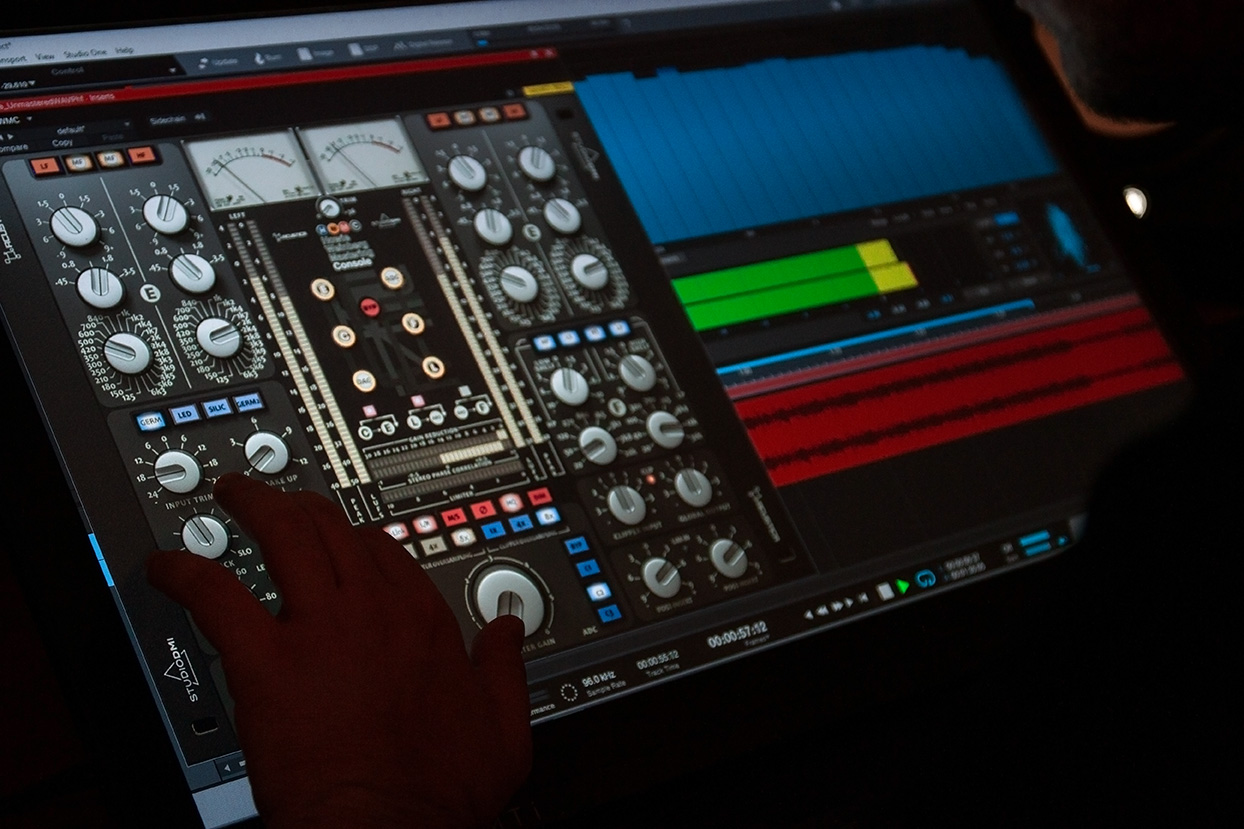




My goal is to help you create the highest quality music, able to stand head to head with the greatest records in history.
Read what my clients think of my work
Working in a wide range of styles allows me to learn from talented artists across all genres. I'm able to take influences from different production techniques and adapt my mastering approach to best suit each project, which I really enjoy.
This idea of understanding the artist's vision and helping them realize it to the fullest potential is incredibly important to me.

My goal is to get your song to sound as good as you imagined it when you first started working on it.
Once your mix is done, let me help present it in the best way to make sure it sounds as balanced as possible and it translates well to all listening environments.
I specialize in mastering to bring your music up to the professional standard that's needed to compete with the most successful songs in the history of recording.
I enjoy pushing a pop, dance, hip/hop or metal track to the limit as well as making sure all the intricate details of an audiophile jazz or classical record are polished and highlighted; and everything else in-between of course.
While I'm maximizing the potential of your song, I'm also fixing issues such as resonances, phase issues, too much high end or low end information, stereo width. After these issues have been fixed, I listen out for what could be enhanced to make the song more engaging. Sometimes this involves bringing out the vocal a bit more or adding some sheen to the top end.

As a mastering engineer I’m the last person to hear your music before it goes out into the world. It is my job to be the first listener to hear your music with fresh ears and no bias and to make changes if needed as the last trained professional. I’m making adjustments to each song as needed so you can be confident that the final master you get back will be your music sounding the best it possibly can.

If I find any problems in your audio that can be corrected such as clicks, pops, phase rotation issues or DC offset, it becomes part of the mastering process for me to fix them. I want to deliver masters that not only sound great but are also technically correct without any audio issues or noise that could be distracting for the listener. If there is an issue in the mix that can’t be solved in mastering, I will inform you and give you a possible solution that you can try in the mix if I believe that could result in a better sounding end product.

The most important part of mastering is making sure that your music will translate to all kinds of listening environments and that it will compete against other professional releases. To achieve this, the song or album needs to have the right tonal balance and the perfect contrast between loudness and dynamics for your style. I’ve trained my ears and calibrated my listening environment in a way that helps me judge whether a song will sound balanced to most listeners and whether the loudness will be able to compete within your genre.

My work ends when I send you the final tracks to be delivered to streaming services or to print. If it’s a single, it simply means I provide the tracks with the correct sample rate and bit depth and dither them properly to avoid quantization errors. If it’s an album it also means setting up the song order and the starts and ends in a way that sounds most musical and creates a consistent, immersive listening throughout the entire album. I also measure true peaks to make sure no unwanted clipping distortion is added to the signal after the streaming service conversion process.
My name is Marcell Kerepesi, I'm a musician, composer and audio engineer. I've been studying music and music theory since the age of 5 before transitioning into audio engineering for my university studies. I've been working as an audio engineer since I finished my music production degree in 2015.
Throughout my two decades in music I've played in an orchestra, been in various bands as a keyboard player and a percussionist, worked as a music teacher and a composer for video games.. I've also been a part of every aspect of music creation from songwriting and recording to mixing and mastering. All of these experiences lead me to have a deep understanding of music as a whole and the entire music production process. These skills are absolutely vital for me as a dedicated mastering engineer to be able to give you a very informed perspective.
I specialize in making sure a given mix sounds as close to professional standards as possible. This requires specific listening skills as well as specialized mastering tools and meters. When I listen to a mix, I know what needs to be adjusted for it to sound professional and I know how to get there.
It's best to leave your sample rate how the mix was done. So if it's been mixed in 48kHz, bounce it down as 48kHz or if it's been mixed in 96kHz, bounce it down as 96kHz. For the bit rate: 32bit-float works best. However if you'd prefer 16bit or 24bit due to size, don't forget to apply dither.
First, please make sure your master bus (output channel) is not clipping. If you're working in a DAW, simply lowering the master bus fader will prevent clipping due to the 32bit or 64bit floating point architecture. As long as your peaks never go above 0dB, it will be fine.
Part of mastering is making sure the final product sounds great everywhere. Streaming platforms provide specific guidelines (integrated LUFS, true peak values) to assist with that, however it's not always a good idea to blindly follow them. Very few major label releases fall within the guidelines.